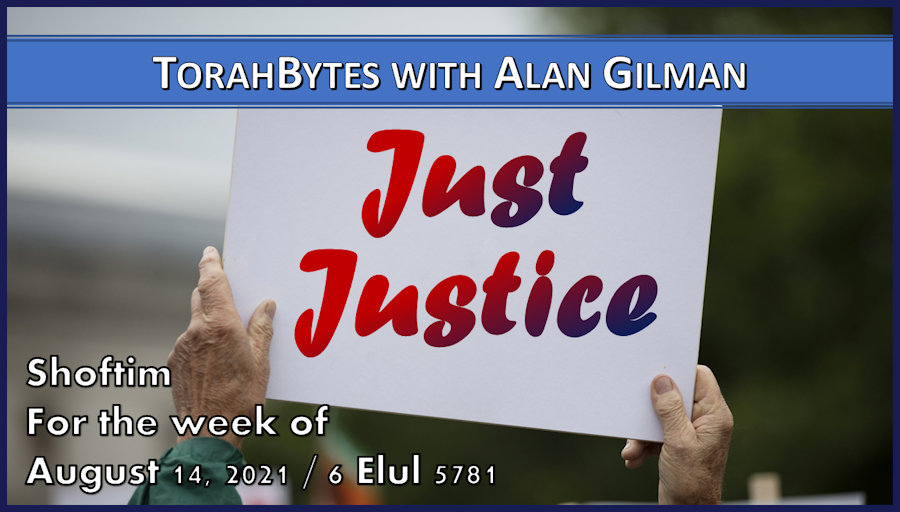For the week of August 14, 2021 / 6 Elul 5781

Shoftim
Torah: D’varim/Deuteronomy 16:18 – 21:9
Haftarah: Isaiah 51:12 – 52:12
Download Audio [Right click link to download]
Justice, and only justice, you shall follow, that you may live and inherit the land that the LORD your God is giving you. (D’varim/Deuteronomy 16:20)
The subject of justice is popular today. Before I continue, let’s get our bearings. The Hebrew Bible has two key words that have to do with justice. Tz’dakah generally refers to that which is right. Mishpat refers to the bringing about of what is right. To bring about what is right is what we call in English, “justice.” The verse I quoted from the Torah uses a word very similar to tz’dakah, tzedek. A more literal reading of the Hebrew would be more along the lines of “The right, and only the right, you shall follow.” That sounds strange, yet the point is clear. The people of Israel were directed by God to always follow what is right. That includes personally doing the right thing as well as seeking to bring about what is right within the society, seek justice in other words.
There is a particular promise to the people of Israel here that makes continued connection to the land of Israel contingent upon the pursuit of justice. While we may not be able to directly apply this to other nations, the Bible demonstrates that right living results in blessing which includes national and personal security and prosperity. Therefore, any and all people anywhere at any time can look to this verse as an encouragement to pursue justice.
This then begs the question, who is to determine what justice is? What is right for one may not be right for another. In the context of Torah, what is right is carefully and clearly defined at least as far as the people of Israel in ancient times were concerned. As for our day, even passionate adherents of the Bible may dismiss certain Torah principles as obsolete be it for the people of Israel or anyone else. I am going to leave the question of what constitutes justice for another time as there is something else in this statement that we all, regardless of who we are and where or when we live, can learn from especially in our day.
What is translated here as “justice, and only justice,” in Hebrew is simply “tzedek tzedek.” The above attempt at a literal rendering could be improved. The Hebrew is closer to “right, right, you shall follow.” Repeating the word in this way is a device to strongly emphasize it. It strengthens the focus on how justice was to be pursued. Remember writing surfaces were not cheap in ancient times, which is one of the reasons why the biblical text is so thick with meaning. Words weren’t wasted. When God states “right, right.” It is purposeful.
The pursuit of what is right must be done in the right way. We mustn’t allow other interests to get in the way when dealing with an injustice. It’s too easy to allow our feelings to determine our actions for example. Our passions prefer to do away with the care necessary to determine the full scope of a situation and the people involved. In the moment justice may looks so clear and shortcuts to justice the most just, but are they?
I wonder if what is conducted under the banner of justice today is true justice. It seems to me that it is more along the lines of revenge. There is an expectation that the society is responsible to satisfy people’s personal grievances. Yet, biblically speaking societal wrongs were primarily against God not others. I can appreciate that agnostics and atheists can’t accept that. However, without God in view, all we are left with is an expectation of others to make the world feel right for us. That will never happen.
The anger that is so prevalent among us today fails to accept that injustice is primarily an internal reality within all of us. First and foremost, we are not right with God. All we human beings are flawed. Systemic and specific injustice is part of the fabric of the whole human experience. To demand personal satisfaction for injustice is a bottomless pit into which we will all fall into unless we have the humility to see that each and every one of us is the problem. This is not to say that there aren’t wrongs that shouldn’t be righted, but unless we go about making things right in the right way, we will only continue the cycle of injustice.
All scriptures, English Standard Version (ESV) of the Bible